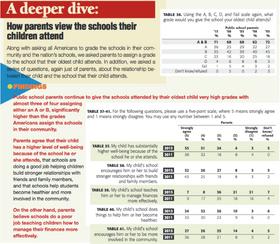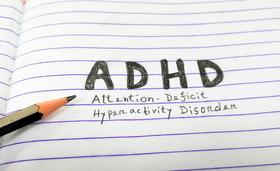Serving 309 students in grades Prekindergarten-5, Community Academy Amos Iii ranks in the bottom 50% of all schools in District Of Columbia for overall test scores (math proficiency is bottom 50%, and reading proficiency is bottom 50%).
The percentage of students achieving proficiency in math was 15-19% (which was lower than the District Of Columbia state average of 54%). The percentage of students achieving proficiency in reading/language arts was 25-29% (which was lower than the District Of Columbia state average of 50%).
The student:teacher ratio of 14:1 was higher than the District Of Columbia state level of 11:1.
School Overview
School Type
Grades Offered
Grades Prekindergarten-5
Total Students
309 students

Total Classroom Teachers
22 teachers

Students by Grade

School Rankings
Math Test Scores (% Proficient)
(13-14)15-19%
54%

Reading/Language Arts Test Scores (% Proficient)
(13-14)25-29%
50%

Student : Teacher Ratio
14:1
11:1

American Indian
1%
n/a
Asian
n/a
2%
Hispanic
2%
17%

Black
97%
65%

White
n/a
13%
Hawaiian
n/a
n/a
Two or more races
n/a
3%
All Ethnic Groups



Eligible for Free Lunch
99%
52%

Eligible for Reduced Lunch (12-13)
4%
3%

School Statewide Testing
School District Name
Community Academy PCS School District
Source: National Center for Education Statistics (NCES), DC Dept. of Education
Frequently Asked Questions
What percent of students have achieved state testing proficiency in math and reading?
15-19% of students have achieved math proficiency (compared to the 54% DC state average), while 25-29% of students have achieved reading proficiency (compared to the 50% DC state average).
How many students attend Community Academy Amos Iii?
309 students attend Community Academy Amos Iii.
What is the racial composition of the student body?
97% of Community Academy Amos Iii students are Black, 2% of students are Hispanic, and 1% of students are American Indian.
What is the student:teacher ratio of Community Academy Amos Iii?
Community Academy Amos Iii has a student ration of 14:1, which is higher than the District Of Columbia state average of 11:1.
What grades does Community Academy Amos Iii offer ?
Community Academy Amos Iii offers enrollment in grades Prekindergarten-5
What school district is Community Academy Amos Iii part of?
Community Academy Amos Iii is part of Community Academy PCS School District.
Recent Articles

How Scaffolding Could Change the Way Your Child Learns
Every child learns differently and it’s a teacher’s job to meet students where they are and guide them through the learning process. Scaffolding is a teaching tool that helps students develop critical thinking skills and the ability to learn independently.

New Poll Shows What Parents Think of Current State of Public Schools
We report on the latest poll by Gallup and Phi Delta Kappa that surveyed individuals nationwide to discover their views on the current state of public schools.

April 12, 2024
Understanding ADHD in Children: Signs, Diagnosis, and Support StrategiesThis comprehensive article explores the complex nature of attention-deficit/hyperactivity disorder (ADHD) in children, providing insights into its symptoms, diagnosis process, and effective support strategies. From recognizing early signs to navigating the diagnostic journey, parents will gain valuable knowledge to help their child thrive. Expert insights, real-life examples, and practical tips empower readers to create a supportive environment that meets the unique needs of children with ADHD.





